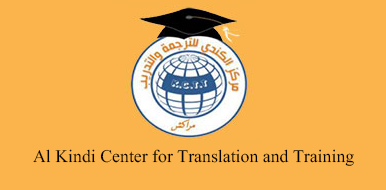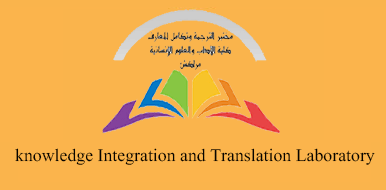The Importance of the Sunnah and the Companions (Sahabas) Effects in the Translation of the Holy Quran” 2012
By Prof. Memoun Barrish
Prof. Memoun Barrish divided his lecture into two parts: The first part was about the value of the Prophetic Sunnah in the understanding and the translation of the Quran. The second part was focused on the importance of the Companions’ effects in the interpretation. In the first part of his lecture, Dr. Memoun Barrish talked about the value that the Sunnah occupies in comparison with the Holy Quran. Sunnah is an inspiration from Allah. It occupies the position of the Holy Quran. That is, it can be relied on (considered) to issue adjudications. Prof. Memoun Barrish then insisted on the necessity of drawing a distinction between the Prophet’s Sunnah and the Effects of the His Companions and His Followers. The Prophetic Sunnah explicates and elucidates the Holy Quran. The Prophet (pbuh) used to perform two different tasks; namely, informing and clarifying. One way the Sunnah is useful to the Holy Quran resides in the fact that much like the Holy Quran, the Sunnah can be a source of all types of judgments. Both the Holy Quran and the Prophetic Sunnah include global, firm, absolute as well as restricted judgments. Therefore, with the help the Prophetic Sunnah, the translator will find it easier to transfer the judgments that are mentioned in separate verses and that are grouped in one single Hadith. For the Fundamentalists, the Prophetic Sunnah explains and elucidates the Holy Quran. That is, it makes it more specific than general, more detailed than broad. It also unfolds its intricacies and specifies its generalities. By way of example, the Prophet Mohamed (pbuh) explains the time meant in the Coranic verse: ‘إن الصلاة كانت على المومنين كتابا موقوتا’, which is the time of Subh, Isha, and Asr. In the Holy Quran, prayer may have the meaning of supplication as in ‘إن الله وملائكته يصلون على النبي’. The Prophet (pbuh) made this saying clearer by teaching us how to pray. In the Coranic verse ‘وآتوا الزكاة’, the Prophet (pbuh) defined the people meant by charity and the amount (out of their money) they are supposed to give for it. Such things are not made explicit in the Holy Quran. The Prophetic Sunnah was also elucidated and detailed in Allh’s saying ‘والسارق والسارقة فاقطعو أيديهما’. The Sunnah is useful to the Holy Quran since it says the unsaid in the Holy Quran. By way of example, the inheritance of the grandmother (from both parents) is not mentioned in the Verse Al mawareeth. But, the Prophet (pbuh) adjudicated that she gets the sixth. Of the Prophetic Sunnah’s sources, we find Hadith texts included in the interpretation. There are three kinds of Hadithic sources. These are: A) Books whose authors are committed to truth and are approved by the Ummah; B) Books whose authors are committed to truth but are disapproved by the Ummah, and; C) Books whose authors are not committed to truth and which include many true Hadiths. Not everything written in the Sunnah is true; though there are books in the same the level of the Holy Quran in terms of their truth such as: Alboukhari’s Sahih, Muslim’s Sahih, and Imam Malik’s Almouwatta. In the second section of his lecture, which dealt with the effects of the Companions on the interpretation, we find ourselves in front of two types of motivations; namely, daawa-related motivations and scientific motivations. As far as the motivations related to daawa are concerned, the translator who seeks to render the meanings of the Holy Quran is obliged to go back to to the Prophetic Sunnah. The scientific motivations, on the other hand, involve the use of the words of the Prophet’s One of the principles of interpretation is that whenever there is a contradiction between the Prophet’s Hadith and His Companions’ sayings, especially when the reference is true and the transfer is strong, then we must give priority to the Prophet’s Hadith. The Companion’ words and actions such as: ‘we were doing this’, ‘we were saying this’, and ‘we saw that’ could occupy the position of the Prophetic Hadith only if they took place at the time of the Prophet. However, if they occurred after his life, they could not give the status of the Prophetic Sunnah. The Followers’ sayings should be dealt with in the following way. In case the Followers disagree on a given meaning, no one’s words can be adopted for judgment, be it in their life and after. Prof. Memoun Barrish concluded his lecture by calling attention to the fact that the Prophetic Sunnah and the Effects of the Companions and the Followers cannot be done without in any attempt to understand the language of the Holy Quran and render it to other languages.

